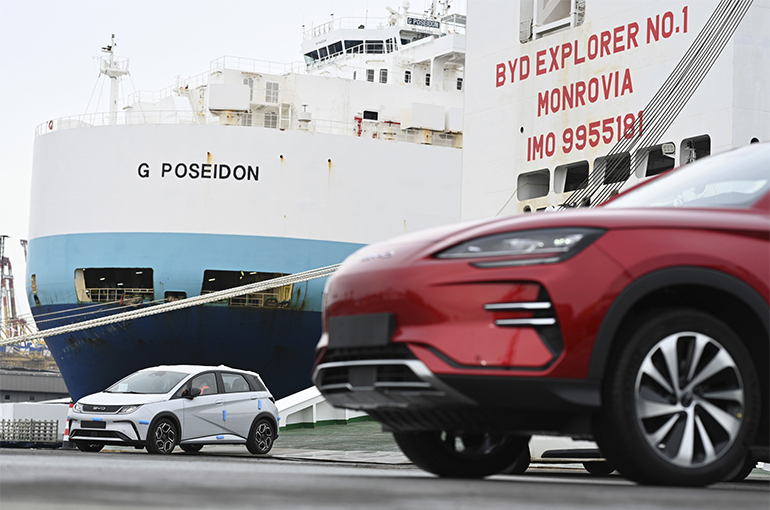 EU Seeks Higher Tariffs on Chinese EV Imports Because It Can't Compete, British Economist Says
EU Seeks Higher Tariffs on Chinese EV Imports Because It Can't Compete, British Economist Says(Yicai) Sept. 2 -- The European Union's plan to impose additional import duties on electric vehicles imported from China, following a similar move by the United States, underscores growing concerns about international competitiveness, according to British economist and blogger John Ross.
“The message is we can't compete,” Ross, who is a senior fellow with the Chongyang Institute for Financial Studies at Renmin University of China, told Yicai. “China is more efficient than us. That's the message which has been sent out, what the effect will be.”
The European Commission, the EU’s executive branch, published a draft plan on Aug. 20 to impose additional import duties of as much as 36.3 percent on EVs shipped in from China, with a final ruling expected by Nov. 4. The US raised tariffs on these EVs to 100 percent in May.
There are two potential consequences of the EU tariffs, Ross noted. First, domestic industries in countries imposing the new levies may become less efficient due to lower international competition.
“German car manufacturers are against the tariffs on EVs. They’ve said it quite publicly,” Ross pointed out. “They don't agree with the German government, because the reason is they know if they're not subject to international competition, they'll become lazy, not inefficient. They need the international competition.”
Second, these countries may become less competitive internationally, according to Ross, who was director of economic and business policy in the London Mayor's Office for eight years to May 2008.
“If you make the tariff high enough, you can stop imports into the US, but you can't stop exports going into Latin America or Africa,” he noted. “It just means that the US won't be able to compete.”
A recent interesting development in Ethiopia can be taken as a sign of a broader trend, Ross said. “Ethiopia, not the world's biggest economy, has become the first country in the world, as far as I know, to ban the import” of fossil fuel-powered cars, he said, predicting a gradual shift from fuel to electric cars over the next two to three decades.
Ross said it is hard to tell whether the United Kingdom, which left the EU at the start of 2020, will follow the EU's lead in raising tariffs on Chinese EV imports. But the UK is less likely to raise import such barriers because there are no large British carmakers, he noted. “From an economic point, there is no reason,” Ross said.
The lack of major UK automakers means that there is no pressure coming from a domestic lobby for such tariffs, Ross said.
“On the other hand, Britain’s political strategy is to do whatever the United States tells them to,” he said. “So the United States will want to damage China as much as possible, so it will put pressure on.”
The UK's EV sector has grown steadily, with battery electric vehicles accounting for 16.8 percent of the auto market in the first seven months of this year, according to the Society of Motor Manufacturers and Traders. BEVs will likely make up 18.5 percent by the end of the year, according to a new projection, which is slightly down on earlier forecasts.
Editor: Martin Kadiev